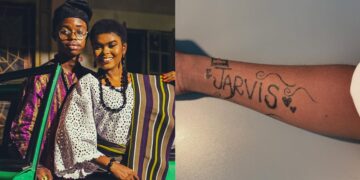According to Frank Onyewekelu, President of the Nigerian Citizens Association in South Africa, at least 20 Nigerians have been killed extrajudicially in South Africa over the past year.
The disturbing trend is highlighted by the recent killing of Julius Chukwunta, who was brutally murdered by four individuals in Johannesburg.
Most of the victims, Onyewekelu revealed, were killed by security agencies, which is particularly concerning given the lack of accountability and transparency in the cases.
The Nigerian High Commission has been criticised for not doing enough to prevent the extrajudicial killings and ensure that justice is served.
Onyewekelu emphasised that if anyone commits a crime, they should be put on trial and face the consequences, rather than being subjected to extrajudicial killings.
The killing of Chukwunta, who lived in Midrand, Johannesburg, is a tragic example of this trend.
According to his partner, Chukwunta was attacked and killed on December 7, 2024, after some individuals blocked the entrance to his complex.
This is not an isolated incident, as the Nigerian government has previously condemned the killing of Nigerians in South Africa.
It is estimated that 116 Nigerians have been killed in South Africa through extrajudicial means over the past two years, with the majority of the killings carried out by the South African Police.
Onyewekelu who spoke in an interview with The PUNCH on the unfortunate killing of Chukwunta stated: “The unfortunate incident that led to his death happened on December 7, 2024. Based on the information we received from his partner, he was coming back from work with his partner. They already drove inside the complex when some guys blocked the entrance.
“He told them to move their vehicle so that he could have access to the parking lot. They refused, and that led to an exchange of words. When he saw that they remained adamant, he walked towards the estate security post to lodge a complaint. As he walked in that direction, the four guys followed him. They stopped him and a fight started. The four guys pounced on him. They inflicted heavy injuries on him.
“When his partner, who was waiting in the car for him, did not see him, she walked towards the security post and saw him on the ground, bleeding. She started calling for help but nobody came. This was for almost an hour, according to her. When there was no help from passersby, she called her father on the phone. Her father came to the scene of the incident. That was how they rushed Mr Chukuwnta to the general hospital on Saturday. He died on Tuesday which was December 10.”
Explained that Chukwunta died as a result of loss of blood because of the heavy injuries on his skull. “They hit a brick on his head. This opened a big wound on his skull. As a result of this, he succumbed to death.”
He noted that three of those four guys that killed him were originally from Zimbabwe although they have South Africa’s residence permits and identity documents.
He regretted that though they were charged for murder, three of the accused persons – Zimbabwean were granted bail in the sum of 10,000 rand each. “The fourth person was also supposed to be granted bail but as of the time of the bail hearing, he had not appointed a legal representative for his bail application.
“He was advised by the magistrate to formally apply for bail and when he does, there is a possibility that he will also be granted, while the case was adjourned till February 2025.”
Noting that he is working on trying to stand before the Senate or the House of Representatives to tell them about many of these sad experiences, Nigerians had been subjected, said:
“If I have to be specific with you, between November last year and December this year, we have had between 15 and 20 Nigerians who have died under this similar kind of death that could have been avoided,” he said.
“Let me mention just a few. Last week, a young Nigerian man was buried in Cape Town. He was arrested by the police authorities. He died in the holding cell due to the injuries inflicted on him by the police. Earlier this year in May, I drove to Northern Cape, another province in South Africa, which required a six-hour drive to report a case to the commissioner of police.
“The case was about police officers who searched his house and suffocated him while trying to search his house. He died in the hands of the police. There was an autopsy report and they refused to give it to us. Another Nigerian died in Johannesburg in the hands of the police. I was there at the scene of the incident and at the police station where he died. Nigerians came out en masse to protest.”
He added, “We have tried to reach out to the government through the Nigeria’s High Commission but they have not done enough. I understand the diplomatic ties and procedures. But, I’m expecting more steps to be taken by them such as media briefings to let South Africans understand that our lives matter.”
“A person is considered innocent until proven guilty. When they arrest anybody, we are not stopping them from letting the person face the wrath of the law if found guilty. But we are against letting Nigerians die through intimidation and brutalisation in the name of hatred against Nigerians. Many Nigerians have died and their bodies repatriated without their families knowing the cause of their deaths.
“This is why our government needs to come to our rescue. We want the Nigerian government to address this with the South African authorities. The Presidency and the Ministry of Foreign Affairs should understand that we are not just making up these stories. There is evidence. There are cases with the police and the courts lying there without being attended to and with no legal representation to fight for justice.”
He however, noted that the xenophobic attacks and hatred for foreign nationals in South Africa are not only against Nigerians.
“There is a kind of general hate for foreign nationals whether Africans or Westerners by South Africans, but Nigerians are on top of the list. I may not be able to explain what led to the hatred but the allegation that Nigerians are taking up their jobs is false. Well, in terms of marriage, when love happens, love happens. Nigerian men are lovable and caring. They know how to take good care of women. That is the reason I think South African women prefer Nigerian men to their men.
“But when it comes to jobs, that’s not true. I can tell you that 90 per cent of Nigerian men in South Africa are self-employed. They build their companies, develop their businesses, and grow their careers. They also employ some of these South Africans to work with them. You can only count a few Nigerians who work for the government or industries. Nigerians are mostly into business; they are medical professionals, lawyers, and others. Some are students, and others are involved in carpentry and hair styling. They open their shops.
“Statistics have proven that the percentage of South Africans in employment is higher than the percentage of foreign nationals put together. But still, you will hear complaints that they are taking their jobs. This rumour has been carried by South Africans who probably are lazy or trying to put up a defence or an excuse for their loitering around and not being serious about getting something to do.
“Our position is that somebody doesn’t have to die because he committed a crime. If there is a crime committed and the person is found guilty, we are not excusing anybody because in some of our programmes we also educate the Nigerian community on the rule of law.”














